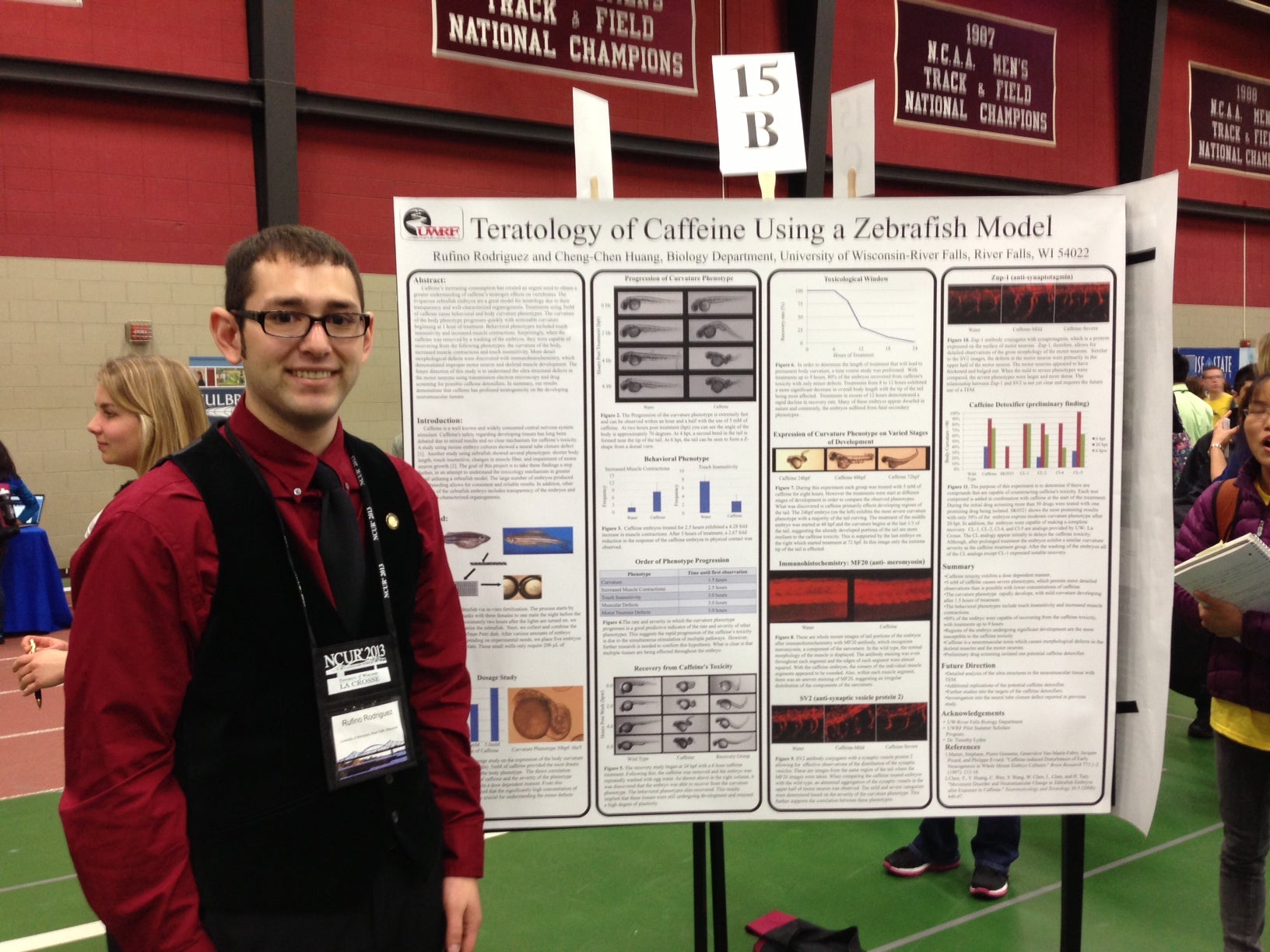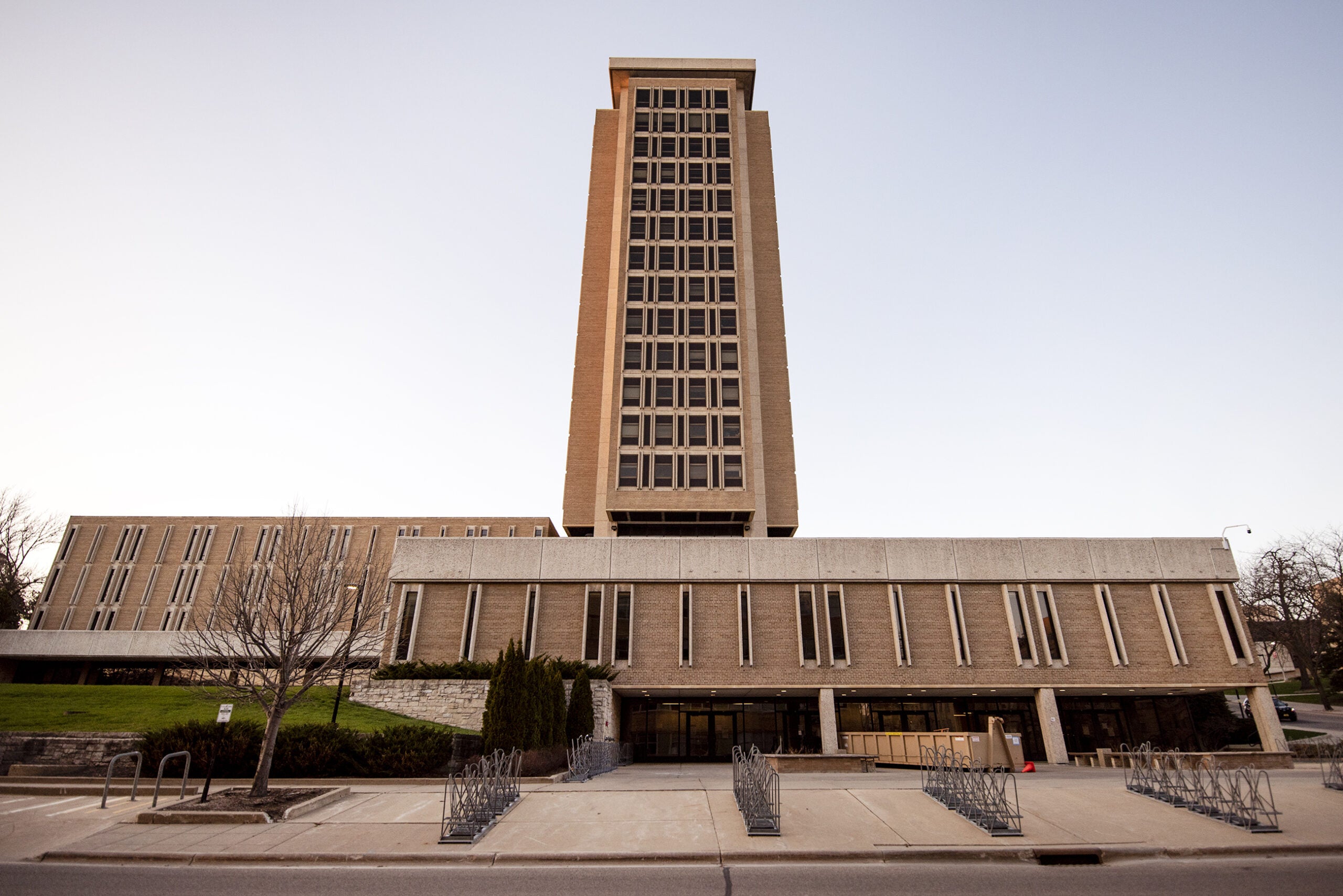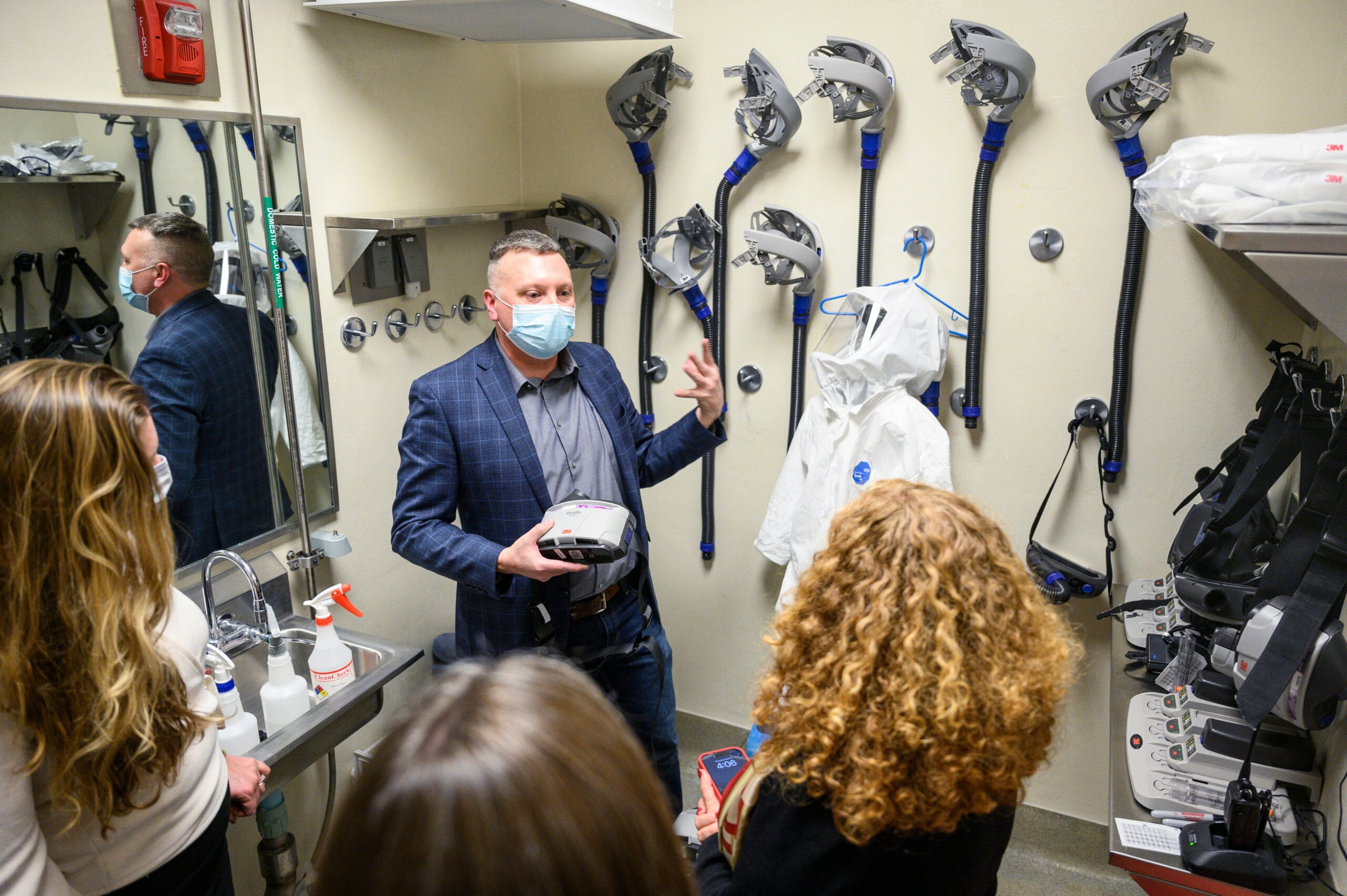Hundreds of college students from across the country are in La Crosse this week for the National Conference on Undergraduate Research. An uncertain future for state and federal funding is on researchers’ minds, but it’s not stopping them.
Poster displays and well-dressed college students pack inside UW-La Crosse’s indoor track facility, where undergraduates present their research.
UW-River Falls biology major Rufino Rodriguez has been studying how caffeine causes birth defects in zebrafish. He received a UW-River Falls grant to research full-time last summer, allowing him to dedicate all his time to the lab work.
Stay informed on the latest news
Sign up for WPR’s email newsletter.
“We go to class, we learn things, but you never get to practice them. Without the funding to be able to do laboratory experiments, it’s not comparable. You go to the lab three hours, that’s it, you’re done once a week. But working in a lab, doing something, you’re going to do the same experiment and you’re going to get really good at it.”
Biology Professor Scott Cooper is the Director of Undergraduate Research at UW-La Crosse. He says undergraduate research funding is strong, since it’s mostly funded through universities and student fees. But faculty rely on state and federal grants for research.
Cooper receives funding from the National Institutes of Health to study the effects of hibernation on blood clotting. He says there’s been a 10 percent cut to his existing grant.
“To run a lab the size of my lab, I need external funding. I couldn’t keep all the students, chemicals, and glassware on the money they bring in with the small grants.”
Cooper says cutbacks on research could also affect the private sector, since many companies, like those in the pharmaceutical industry, heavily rely on university research.
Wisconsin Public Radio, © Copyright 2024, Board of Regents of the University of Wisconsin System and Wisconsin Educational Communications Board.





